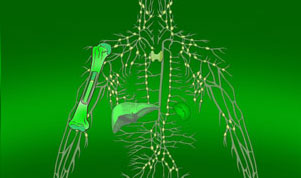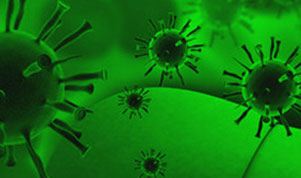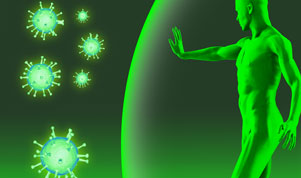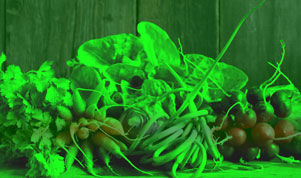Cold Sore (Lat. Herpes labialis)
|
|
Cold sores are not only unsightly. It is accompanied by an itchy rash and pain around the mouth, which are the first symptoms of cold sores caused by the HSV1 virus. It can be infected, although it usually attacks a weakened body. Herpes itself is not dangerous, but the complications caused by it are, which is why herpes must be treated and prevented from recurring. Herpes labialis is a recurring problem for many people, because almost all of us are carriers of the herpes virus. It is estimated that almost 50% of people in the UK are infected*, but only half of them get sick. It is not entirely clear why this happens. The role of reduced immunity or local (local), e.g. as a result of exposure to UV radiation or general immunity (e.g. as a result of a cold) in triggering a herpes attack is being raised. EpidemiologyThe frequency of infection and carriage of the HSV1 herpes virus varies greatly. In European countries it ranges from the lowest in Finland - 52.4%, in Belgium - 67.4%, in the Czech Republic - 80.6%, in Bulgaria as much as 83.9% and in Turkey even - 97%. The prevalence of HSV2 carriage also varies. From about 12% in the UK*, aprox. 15% in Poland, to almost 24% in Bulgaria and as much as 42% in Turkey. Women are more often carriers of HSV2 virus. * Lack of precise epidemiological data. According to Dr. Bani the virus that causes oral Herpes, HSV-1, affects approximately 70% of the population and is often referred to as a cold sore. The HSV-2 virus, which causes Genital Herpes, affects 23% of adults in the UK. Source: Your Sexual Health. |
|
Herpes symptoms occur in about 20% of infected people. Their manifestation is influenced by a lowering of local immunity, e.g. as a result of intensive exposure to UV rays, or by a lowering of the body's general immunity, e.g. as a result of severe hypothermia, in the course of other diseases, after treatment with antibiotics, after chemotherapy or after radiotherapy. In people infected with a virus that is "dormant", reduced immunity significantly increases the risk of herpes incidents, while improved immunity can manifest itself, among other things, in a reduction in the recurrence of herpes labialis (HSV1 virus) and has a beneficial effect in cases of genital herpes (HSV2 virus). Therefore, it is worthwhile to effectively strengthen immunity by reaching for immune supplements providing spirulina extract.  |
Treatment
Antiviral drugs (acyclovir and valacyclovir) administered systemically reduce the severity of symptoms of primary and recurrent infection, but do not eliminate latent virus and do not reduce the risk of infecting others or the frequency and severity of recurrence after cessation of treatment.
The treatment and management depends on the clinical situation. In the case of lips cold sore or mouth and throat mucosa, we distinguish:
1) primary infection – in case of high dynamics and severity of lesions or in immunocompromised patients regardless of its cause → administration of acyclovir tablets, 200 mg taken every 4 - 5 hours (5 × daily) for 3 - 5 days or valacyclovir 2 tablets 500 mg twice daily (every 12 hours) for 3 - 5 days
2) recurrent infections (intermittent treatment of severe recurrences) → treatment is best started at the time of the first signs, at the latest on the day of onset of the lesions; acyclovir tablets 200 mg every 4 - 5 hours (5 x daily) for 3 - 5 days or valacyclovir 2 tablets 500 mg every 12 hours (2 x daily) for 1 day or 500 mg every 12 hours for 3 days; in milder herpes labialis, acyclovir cream (5 x daily) is also effective.
In the case of persistent and/or severe recurrent herpes, it is important to check the efficiency of the immune system and support it accordingly. Immunosupplements can play a role here. It is also important to check whether there is any situation that results in a lowering of immunity and to take action to eliminate this.

Genital Herpes
It is an ailment that continues to be an embarrassing problem for most of those infected with it. This condition is the most commonly diagnosed STD. However, in many cases it is caused by the herpes simplex virus type 1 (HSV1), which is usually responsible for the appearance of herpes on the lips. Herpes virus type 2 (HSV2), on the other hand, is only responsible for the appearance of genital herpes. Genital herpes produces no symptoms in very many people and is passed on to the male or female partner during sexual intercourse. The symptoms, if any, are very easy for the doctor to recognise; there may be pain and skin lesions in the form of blisters that locate in the genital area and perineum (in both men and women). Occasionally herpes attacks the anal and buttock area. Occasionally, some patients experience notorious recurrence of herpes symptoms, but they are less troublesome than the first time. Those with regular recurrence of genital herpes should continually take antiviral medication.
Clinical Evaluation
Lars Lindmark1 and Michelle Schørring-Thyssen2Spirulina Extract in Recurrent Herpes Labialis1Kasima Medical Development AB Treleborg, Sweden AbstractHerpes around the mouth, accompanied by painful eruptions, is a very common problem caused by the herpes simplex virus. A weakened immune system, e.g. as a result of a heavy cold, stress, UV exposure or fever, is thought to play an important role in the reactivation of the virus and the recurrence of herpes lesions. A good treatment for recurrence has not yet been invented. Popular antiviral drugs do not prevent herpes outbreaks, as they are used when herpes has already occurred. A preparation containing an immunoactive extract of Spirulina platensis with proven immune system stimulating and modulating properties was evaluated. Spoken data suggested that this spirulina extract (from the microalgae Arthrospira platensis) could be a valuable supplement to benefit recurrent herpes labialis. The effect of the use of spirulina extract by people with persistent, recurrent (up to several times a year) herpes was assessed. The use of the product dramatically reduces the incidence of herpes labialis, while when herpes does occur, the use of spirulina extract alleviates and shortens its course. Spirulina extract was well tolerated by all patients. No side effects or adverse reactions were observed during follow-up. AimA clinical trial was conducted to determine the usefulness and efficacy of an orally administered microalgae extract preparation for the prevention and treatment of recurrent herpes labialis (HSV1). Subjects and methodsIt was placebo-controlled and double-blind study. The inclusion criteria for the study was six or more episodes of herpes labialis in the previous 12 months. One group received spirulina extract capsules (at a dose of 400 mg per day) for 24 weeks. The control group received placebo in the form of identical capsules containing microcrystalline cellulose. The study was conducted as a consumer study and participants kept diaries recording all symptoms daily. A total of 148 participants took part in the study, of whom 84 participants (22 men and 62 women) received the active preparation containing spirulina extract and 64 participants (18 men and 46 women) who received the placebo. ResultsThe group that received the spirulina extract product (Immulina) had an average of 40% fewer herpes incidents compared to the placebo group during the study period. In the group receiving Immulina, the number of subjects completely free of herpes symptoms was 34/84 (40%) compared to 3/64 (5%) in the placebo group (p≤0.002). There was no recurrence of herpes in the last 12 weeks of the study in 51/84 (61%) compared to 16/64 (25%) in the placebo group. Statistical analysis (Fisher-Snedecor test) showed significance at p≤0.002. No side effects were observed during the study. There was a trend for men to respond slightly better than women to taking the spirulina extract preparation. Conclusions
|










